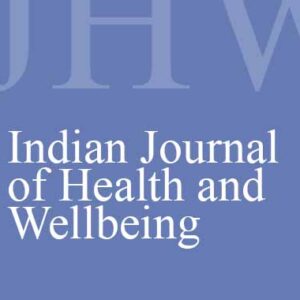
Social support, self-esteem and suicidal ideation among HIV/AIDS patients in Jammu and Kashmir state
Pages: 944-949
Mohammad Amin Wani and R. Sankar (Department of Psychology Annamalai University Tamil Nadu )
The cardinal aim of the present study was to find the level of social support, self esteem and suicidal ideation among HIV/AIDS patients. Further, the study strived to find the relationship between the experimental and criterion variables. The study consists the sample of 259 AIDS patients selected through purposive sampling technique, out of 259 respondents 108 (41.7%) were male and 151 (58.3%) were female patients. Enriched Social Support Inventory developed by Mitchell et al. (2003); Rosenberg’s Self-Esteem Scale (1965); and Suicidal Ideation Scale developed by Sisodia and Bhatnagar (2011) was used to measure the level of social support, self esteem and suicidal ideation among HIV/AIDS patients. For the statistical analysis of data Mean, t-test, one way Anova and Pearson Correlation was applied by using SPSS 20.0 version. The findings undercover that majority of patients have average level of suicidal ideations n=184 (71.05%), followed by n=37 (14.29%) having high level, n=36 (13.89%) very high level and n=2 (0.77%) having low of suicidal ideation respectively. The study also revealed that n=212 (81.85%) participants have low level of social support and n=47 (18.15%) have high level of social support. Synchronically, huge number of respondents n=124 (47.87%) showed low level of self esteem, followed by n= 116 (44.79%) having normal level, and n=19 (7.34%) showed high level of self esteem respectively. The findings also confirmed that there are significant mean differences between social support, self esteem and suicidal ideation with respect to gender, marital status, age, occupation, family income, and duration of illness. Further the findings shows that suicidal ideation is negatively significant correlated with social support (-.897) and self esteem (-.780). Synchronically, social support was found positively significant correlated with self esteem (.811).
Description
Pages: 944-949
Mohammad Amin Wani and R. Sankar (Department of Psychology Annamalai University Tamil Nadu )
